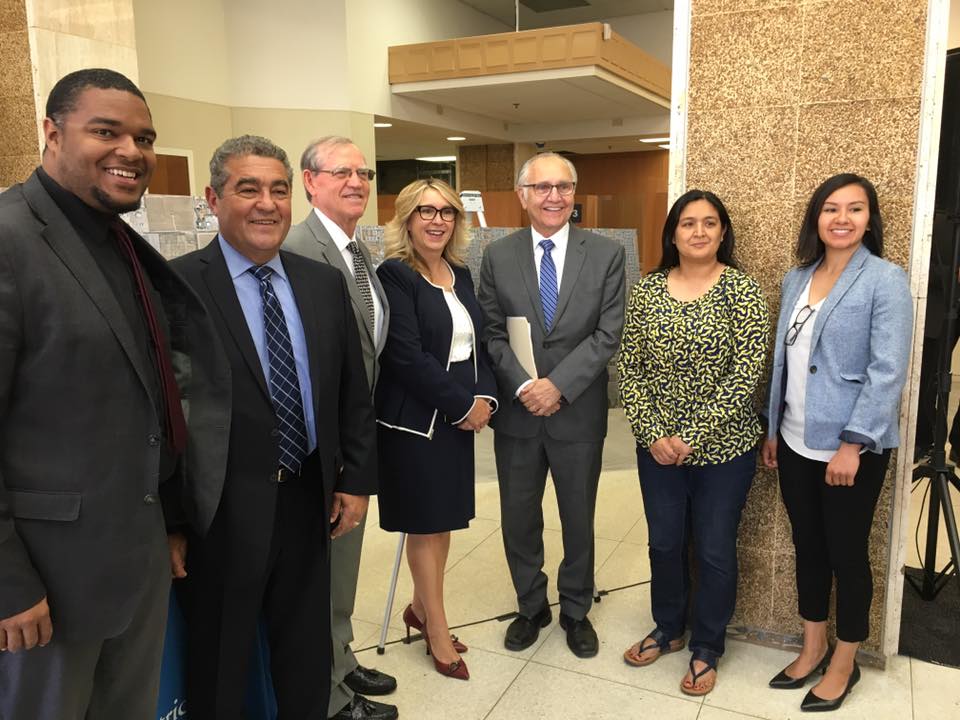The Fulton/Lowell Design Review Committee is trying to help City Hall make sense of two big challenges facing Fresno.
I’m talking about neighborhood stability and political hypocrisy.
I sense the committee members don’t have any more (or better) answers than the rest of us. What do you expect when bums, booze, dope and liberty are on the agenda?
But at least they’re trying.
The committee met late Monday afternoon at City Hall. Three of five members showed up: Chairwoman Becky Foore-Hayden, Stacey Ruble and Roz Clark.
Margo Lerwill of the city’s planning department helped maintain the meeting’s brisk pace.
I was the only person in the audience.
The committee is an advisory board charged with giving a thorough once-over to proposed city policies affecting Downtown’s historic Fulton/Lowell neighborhood. The members are volunteers.
I left about an hour into the meeting. Committee members and Lerwill at that point were discussing a homeowner’s questionable selection of windows for a residential remodeling project.
First, though, committee members conducted an impassioned review of proposed amendments to city laws concerning recycling centers, offsite alcohol sales permits and marijuana dispensaries.
Advisory committees like Fulton/Lowell fill an important but unsung role in local self-governance.
The scenario goes like this:
The Mayor’s team comes up with an idea to make Fresno a better place. The idea is debated in-house. The idea is put to paper. Then the idea gets its first public airing. That gives city officials a hint of which way the wind is blowing. Adjustments (or alibis) can be prepared before the idea heads for Prime Time in the Council Chamber.
City officials sometimes do the “public airing” part of this song-and-dance by going straight to community meetings. That’s what then-Mayor Ashley Swearengin did with Recharge Fresno’s water rates.
Usually, though, this process begins with something like Wednesday’s meeting with Foore-Hayden, Ruble and Clark.
Keep in mind that the task before the committee involved changes to rather lengthy city ordinances. It wasn’t clear to me if members were authorized to address only the proposed changes or could opine on the entire law.
Not that rules mattered. The Fulton/Lowell members grabbed the initiative. They dissected each law from top to bottom.
We all know what an unruly and poorly regulated recycling center can do to a neighborhood. The homeless, vagrants, and petty criminals treat recycling centers as a bank of last resort. Blight and crime often plague the nearby streets.
The recycling center ordinance has a number of proposed additions and deletions. For example, City Hall for the most part wants to limit the centers to light and heavy industrial districts. The city wants to keep the centers at least two miles from parks and schools (the limit now is a half-mile). The current law requires a recycling center to be in a permanent structure; the revised law says an ISO container (in essence, one of those standardized metal shipping containers you see on a freight train) is not a permanent structure.
Committee members had a field day with the law’s impact in the real world. For instance, the law requires center operators to comply with the city’s Abandoned Shopping Carts Ordinance.
“Some of this is laughable,” Foore-Hayden said.
Added Clark: “Some of this is unenforceable.”
Next up was the city’s ordinance for the sale of alcoholic beverages for offsite consumption – essentially, liquor stores and convenience stores.
There are two big changes in the works. The city wants to limit the number of such stores (excluding retailers in buildings bigger than 10,000 square feet) in each council district. The precise number is still to be determined. However, Lerwill said city officials are thinking about setting the limit at 100 stores per council district.
Lerwill said there currently about 900 such stores in all of Fresno.
There are seven council districts. That means at least 200 stores in buildings smaller than 10,000 square feet currently selling booze for offsite consumption are headed for a major disruption in their business model should the law’s changes be approved.
Which leads to the second big proposed change. Stores selling booze have conditional use permits issued through City Hall. No permit, no alcohol sales. Some of these permits date back to the early 1980s. They never die.
City Hall proposes expiration periods for the permits.
These expiration periods would be City Hall’s method of slowly but surely reducing the number of liquor stores from 900 to 700.
“This is something that may have to be refined,” Lerwill said of the proposal.
At the same time, booze joints of all types have long been a political hot potato at City Hall. They, like recycling centers, can attract a rough crowd whose behavior kills a neighborhood.
On top of that, it seems that Fresno has some type of liquor-selling business on every street corner.
Said Clark: “This city – I’m trying to find the right word to describe alcohol sales.”
Pause.
“Ridiculous.”
Finally, the committee came to the marijuana ordinance.
There was some confusion in the beginning. The City Council last month passed a bill banning recreational marijuana dispensaries in Fresno. The council’s action was the introduction of the bill. To become a law, the council must take a second vote – the adoption vote. That is scheduled for this Thursday’s meeting.
Fulton/Lowell committee members (and myself) wondered if the proposal before them was the same one returning to the council on Thursday.
Near as I can tell by comparing the proposal before the committee and the bill going to the council on Thursday, they’re different.
The current law states: “Commercial Marijuana Operation as a prohibited use. A Commercial Marijuana Operation is a prohibited use in all zone districts in the city.”
The proposal before the Fulton-Lowell committee would add this: “However, this prohibition does not apply to a commercial entity that conducts laboratory testing of marijuana (either recreational or medicinal), if testing of marijuana comprises twenty percent or less of the entity’s business at the Fresno location, the entity is located in an Industrial District, the entity complies with all applicable state laws, and the entity creates a public health benefit with a focus on public safety.”
The committee focused less on this proposed amendment and more on the wisdom/folly of widespread marijuana consumption in general. In other words, the three members engaged in the same debate that all of Fresno has tackled for months.
Make no mistake – Foore-Hayden, Ruble and Clark did their jobs with style and professionalism. Proof of the latter came when they voted on recommendations.
The committee recommended that city officials get in touch with state officials before pushing too hard on the recycling center law. Sacramento, they said, can be touchy when it comes to a smaller jurisdiction doing something that affects state recycling law.
The committee recommended that owners of liquor/convenience stores hit by taggers remove the graffiti within 24 hours instead of the current 48.
And the committee said it’s fine with medical marijuana. Clark voted no: “If we’re saying we should not allow dispensaries – I say (ban) everything.”
That’s it – three big laws, three modest recommendations. The Fulton/Lowell Design Review Committee doesn’t suffer from mission creep.
I don’t know if it was coincidence or by design of city officials, but all three laws before the committee deal with quality-of-life issues. Many Fresnans and their elected representatives are desperate to improve the city’s quality of life. This is especially true when talking about lower-income neighborhoods.
Monday’s Fulton-Lowell committee meeting is further proof that the administration of Mayor Lee Brand cherishes ordered liberty for every neighborhood.
And I found the proposed alcohol amendments to be especially relevant to current events. Critics of the council majority’s ban on recreational marijuana dispensaries like to compare the city’s firm regulatory stance on dope sales to the city’s supposedly indifferent regulatory stance on alcohol sales.
You know – city officials as hypocrites.
That narrative is headed for a beating.









George-I wonder if that’s Bredefeld’s medical marijuana ordinance. He said on social media that he supports medical pot and he’s going to bring a revision to the current rules to city council very soon.